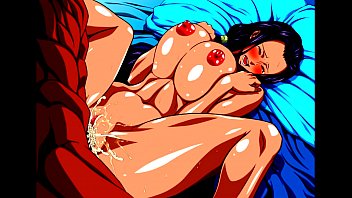

But a bad back, lawsuits with MCA TV over “Rockford” syndication payments (he eventually settled, reportedly for several million dollars) and, eventually, heart surgery curtailed his ability to endure the rigors of a TV series. He again essayed “Bret Maverick” for one season in 1981.

But his old injuries and pay disputes led Garner to call it quits even though the show drew high ratings on NBC. Margolin said at the time that Garner worked long shifts, did his own stunts and stayed to do off-camera lines for the other cast members.
3gp indo porn series#
Cannell for the detective series recycling many of the plots from “Maverick.” Many of Garner’s friends had recurring roles in the series, including Joe Santos and Stuart Margolin as his buddies. Buddwing” and “Grand Prix,” which gave him a yen for car racing, weren’t particularly memorable.ĭuring this period he appeared in Westerns including “Hour of the Gun” (in which he played Wyatt Earp), comedy Western “Support Your Local Sheriff,” “They Only Kill Their Masters,” “Marlowe” and “Skin Game.”īut he really scored on TV, where, after the brief NBC Western series “Nichols” in 1971, he hit paydirt with comedic detective skein “The Rockford Files,” which ran from 1974-80 and won him an Emmy in 1977 and another four nominations.

The films were now A-budget, but “Duel at Diablo,” “Mr. He then nabbed the thriller “36 Hours” and a couple of indifferent comedies, “The Art of Love” and “A Man Could Get Killed.” He said that he drew on his experience in the Korean War, during which he was the company scrounger, for the latter role.įor a time he seemed ready to inherit the aging Cary Grant’s romantic comedy leading man mantle with such films as “The Thrill of It All” (1963), “The Wheeler Dealers” and “Move Over Darling.” Arthur Hiller gave him a meatier assignment, in the satire “The Americanization of Emily,” opposite the then-red-hot Julie Andrews. His roles in films got better: “Boys’ Night Out” and, especially, “The Great Escape” brought him his best notices. He appeared in specials before landing a supporting role in “The Children’s Hour” with Shirley MacLaine and Audrey Hepburn.
3gp indo porn free#
In the meantime, Warners was serving him frustrating fare like “Up Periscope” and “Cash McCall.” Taking advantage of a suspension during the Writers Guild strike of 1960, Garner sued Warners for breach of contract - and won - allowing him to be a free agent and demand more for his services. Lazy or not, the actor shared the Golden Globe for most promising male newcomer in 1958 and earned his first Emmy nomination in 1959 for “Maverick.” “I’m playing me,” Garner said about the role. The actor stayed with the series until 1960, when he quit over a dispute with Warners. “Maverick” led to a long relationship between Garner and its creator, Roy Huggins. Other actors revolved in and out including Clint Eastwood as a vicious gunfighter. Originally the story was to alternate between the Maverick brothers played by Garner and Jack Kelly, but “Maverick” quickly became all about Garner’s character, who used his wits to get out of trouble. The real boost to his career came in a role now indelibly associated with him, that of Bret Maverick in the comedic Western that ABC debuted in 1957 the role and the series fit his wry personality like a glove. He was first really noticeable in a role as Marlon Brando’s pal in “Sayonara,” after which he was assigned a supporting role in “Darby’s Rangers.” When “Darby’s” lead Charlton Heston walked off the film, Garner inherited his first starring role, but reviews were mixed. He paid his dues in supporting roles in “Towards the Unknown,” “The Girl He Left Behind” and “Shootout at Medicine Bend” as well as some TV assignments. gave him a screen test and a contract at $200 a week. After studying with Herbert Berghof, Garner landed a role in the touring production of “Caine.”īack in Los Angeles in 1955, he secured bit parts in the TV series “Cheyenne.” Impressed, Warner Bros. Garner found his way to showbiz through a friend, theater producer Paul Gregory: He was employed cueing actor Lloyd Nolan during rehearsals of the Broadway-bound “The Caine Mutiny Court Martial.” Garner eventually copped a nonspeaking role in the 1954 production, where, he said, he closely studied the play’s star, Henry Fonda.

APPRECIATION: James Garner Gracefully Bore the Weight of Stardom


 0 kommentar(er)
0 kommentar(er)
